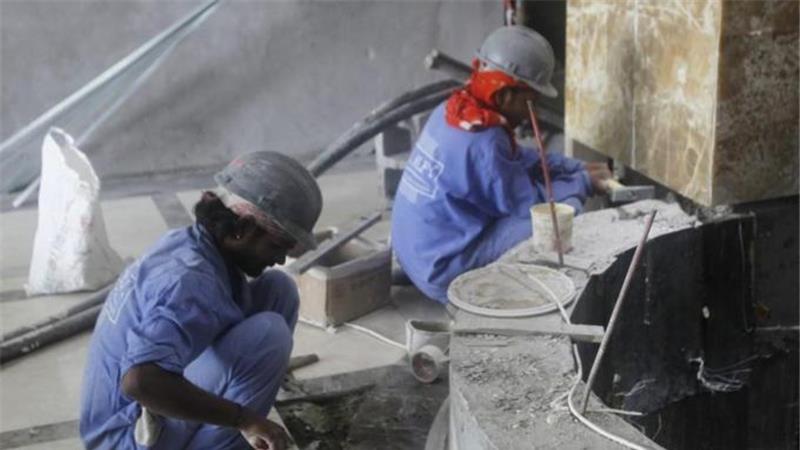
November 15, 2015
Beyond Purely Legal or Economic Analyses of Migrant Laborer Abuses
by Safa Peera, a JD candidate at Texas Law, and a 2015-16 scholar at the Rapoport Center for Human Rights and Justice. She can be reached at speera@utexas.edu.
This commentary is in response to Ryan Jones’ paper, “Beyond Kafala: Remedying Human Rights Abuses of Migrant Workers in the Persian Gulf.”
Ryan Jones’ paper, “Beyond Kafala: Remedying Human Rights Abuses of Migrant Workers in the Persian Gulf,” examines the kafala system in the Gulf Cooperation Council (GCC), namely Saudi Arabia, the United Arab Emirates, Qatar, Kuwait, Oman, and Bahrain. The kafala is a system of laws and customs used to govern migrant workers in these countries. Some of the more egregious laws tie workers to one employer, enabling the confiscation of the workers’ passports during their stay in the country.
The paper is thought-provoking in that it challenges two existing and quite opposite interpretations of kafala, one legal and the other economic. The legal analysis focuses on the laws in the system of kafala, and sees the repeal of those laws as the key to alleviating the human rights abuses. One case study is Bahrain, which reformed some of the most restrictive laws within kafala. As the Bahraini case illustrates, however, the legal system may not be the ultimate cause of the problem, for the legal reform has failed to curb the human rights violations suffered by migrant workers. Jones sees the focus on legal rules within kafala as an instance of what Susan Marks calls “root cause” analysis in international human rights. Despite their objective of unearthing the “root causes” of human rights abuses, human rights institutions halt the investigation into causes too soon; treat effects as causes; and dismiss certain causes without proper consideration. In the case of kafala, NGOs focus on legal rules, ignoring the role of economic inequality in contributing to migration and to workers’ vulnerabilities vis-à-vis their employers.
Jones then turns to an economic analysis of kafala and the use of migrant workers in the Gulf countries. He examines the assertion made by Professors Eric Posner and Glen Weyl that the current system of migrant workers is doing more to reduce global inequality than any other system in the world—that by allowing the high flow of migrants from some of the poorest countries, the GCC nations are increasing the earning power of migrants in an unparalleled manner. Posner and Weyl recognize that empowering the migrants with political, social, and economic rights will dampen the enthusiasm of the GCC countries to welcome migrants. This in turn will reduce the high amount of remittances sent by the migrants back to their poor home countries, which Posner and Weyl claim are critical to reducing inequality. Posner and Weyl’s claim is more attentive than the legal analysis to the economic inequality underlying the migrant workers’ experiences. Yet Jones is also skeptical of their argument. He points out that it excludes important factors in its analysis including the cost of migration for these workers. He also points out that Posner and Weyl seem unconcerned by the inequality the very system of migrant workers is propagating. So long as the poor migrant class and their home countries are getting richer, they seem content to ignore the resulting proportional increase in wealth in the GCC countries through the cheap, migrant labor.
Perhaps one way to integrate legal and economic analysis would be to compare the condition of the migrant workers who are the focus of this article to migrant workers in the Gulf countries who are governed by the same kafala system but are not subject to similar human rights abuses. The kafala system—with all its legal underpinnings—is used to govern any worker within the country who is not a GCC national. While the abuses are rampant amongst migratory workers due to the lack of leverage they wield, the same laws govern Western and other nationals who work the lucrative jobs at Saudi Aramco (the state owned oil company) and elsewhere. Perhaps a comparison with this class of workers can provide clues as to how to best address the abuses against the non-professional, low-income workers. The answer may or may not have to do with the laws in kafala. While Jones’ paper does not go so far as to examine such a claim, perhaps because of the common perception that kafala only affects the powerless migrant workers, his research helps lay the foundation for such an exploration.

